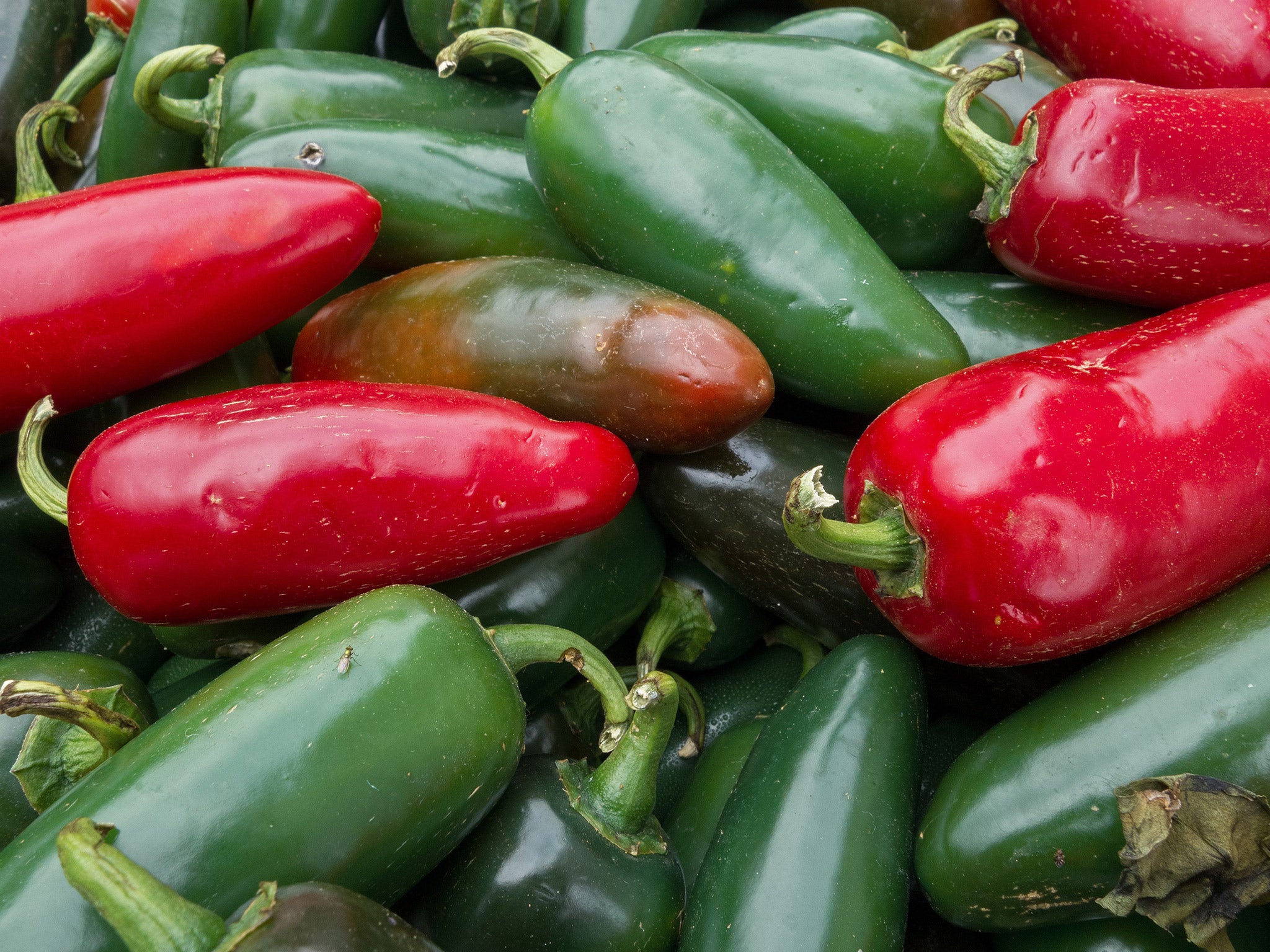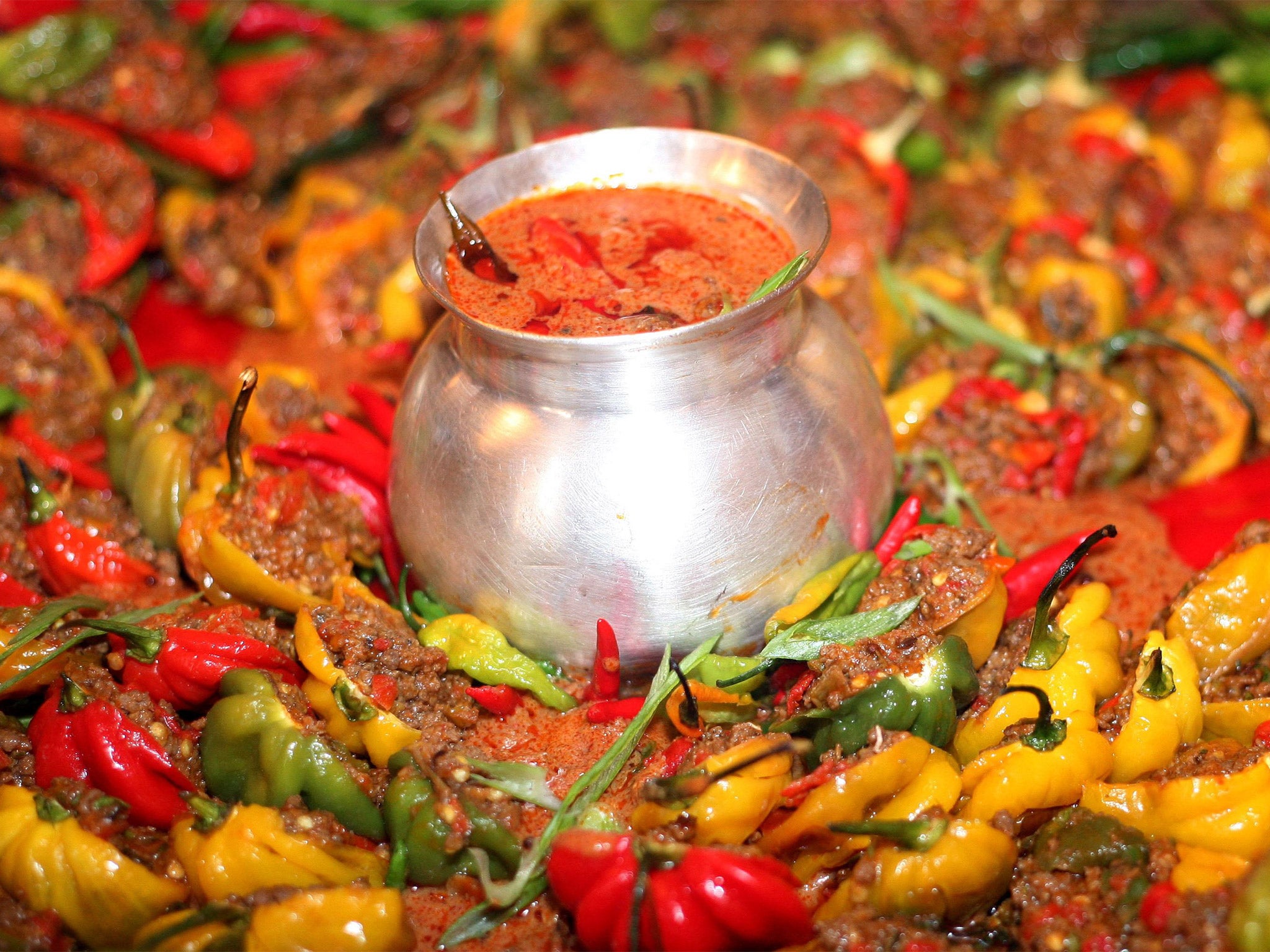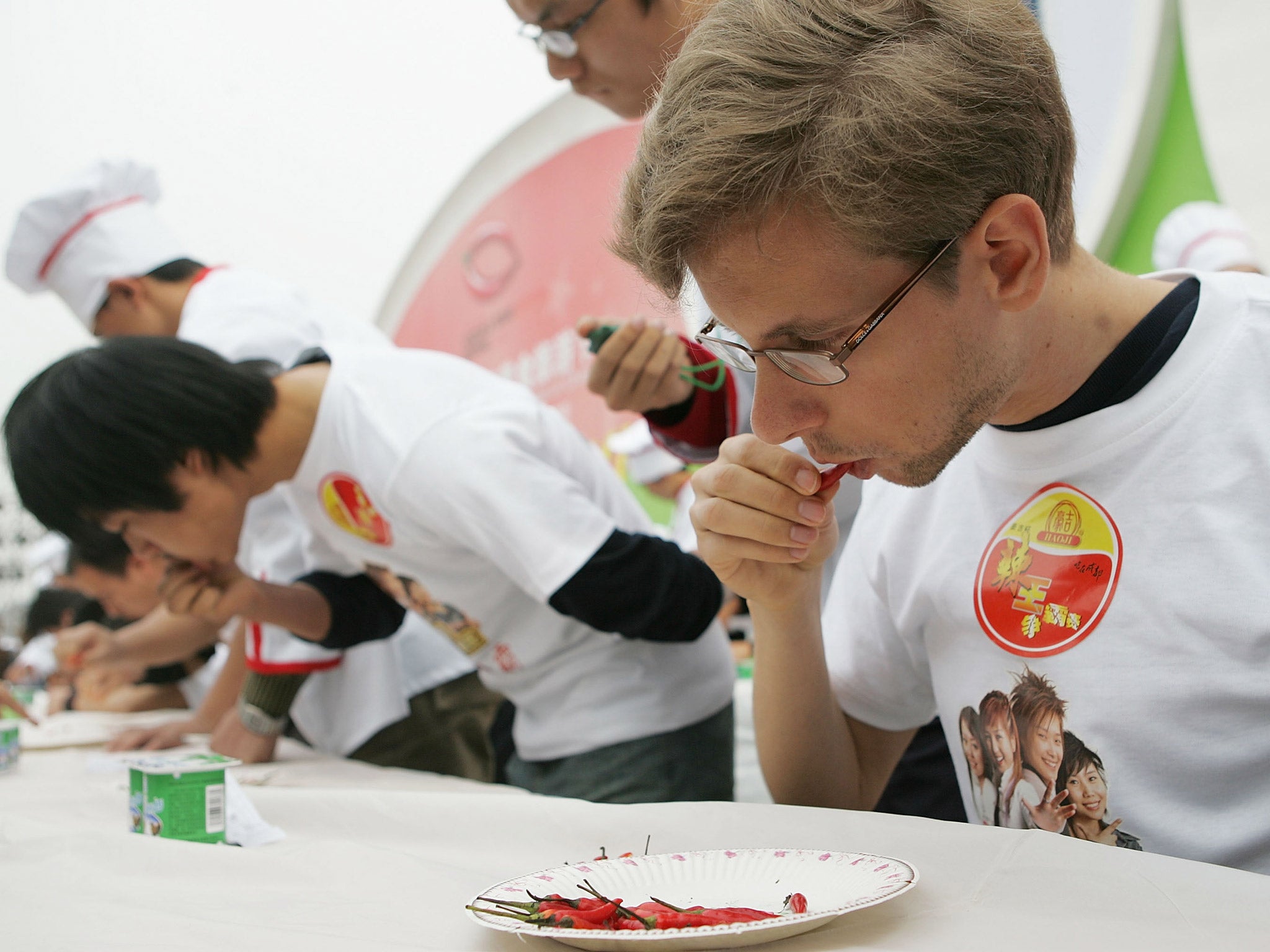Spicy food 'can lower the risks of early death'
Those who had spicy food six or seven times a week were found to have a 14 per cent lower mortality risk than those who rarely consumed such foods

Gastronomically speaking, adding a touch of spice to your daily meal has well-established advantages. But could it be that those who like it hot are also improving their health?
Researchers in China are reporting findings from an extensive study which found that those who regularly consume spicy food had a slightly lower mortality risk over seven years of follow-up, than those who ate them less than once a week.
Out of 487,375 participants, 20,224 died over the average seven year study period.
When the results were adjusted for age and other influential factors, those who had spicy food – usually in the form of chilli peppers, chilli sauce or chilli oil – six or seven times a week, were found to have a 14 per cent lower mortality risk than those who rarely consumed such foods.

A similar pattern was seen in mortality risk for particular conditions, including cancer, and heart and respiratory conditions, according to the research, published in the British Medical Journal (BMJ).
As with any such study, researchers couldn’t prove it was the spicy food that was lowering people’s risk. Some expert commentators have wondered whether it might be the foods consumed with the chilli, or some other lifestyle factor associated with chili-eating. For example, those who ate the most spicy food were more likely to live in rural areas.
Nevertheless, the research has prompted calls for further investigation into the effects of spicy food, which the experts behind the study, from the Chinese Academy of Medical Sciences, said may “lead to updated dietary recommendations”.
Dr Nita Forouhi, from the Medical Research Council’s epidemiology unit at the University of Cambridge, said that while the findings should only be considered “hypothesis generating” rather than conclusive, debate and research into spicy food was certainly “hotting up”.
“Many potential benefits have been suggested for chilli or its bioactive compound capsaicin,” she said in a BMJ editorial, among them antimicrobial, anti-oxidant, anti-inflammatory, and anti-cancer properties.

However, none of these findings have yet been tested in a “systematic appraisal” of spicy food – the kind of study which could now be warranted, Dr Forouhi said.
Capsaicin is a compound in chilli peppers that causes a burning sensation when it comes into contact with mucous membranes – and causes the sensation of spiciness in food.
It has also been linked to anti-obesity effects, and with beneficial impacts on the bacteria in our gut.
But Catherine Collins, principal dietician at St George’s Hospital, said the Chinese study was not “sufficiently persuasive” to recommend chilli peppers as part of the daily diet.
“It’s rare in any style of cooking for just one spice to be used, so it’s impossible to determine whether chilli peppers have some magical effect on mortality (highly unlikely) or that using chilli represents a style of eating that adds health as well as nutritional benefits,” she said.
Join our commenting forum
Join thought-provoking conversations, follow other Independent readers and see their replies
Comments